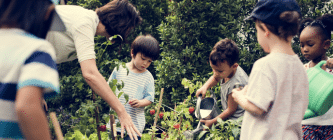Archive for 2023
Nurtureuk achieves the international standard for information security management
Nurtureuk is proud to announce that it has achieved certification to ISO27001, the international standard for information security management.

To achieve certification, we have successfully completed a detailed two-stage audit with an external auditor looking at every aspect of how we manage systems, protect the data we hold, and progressively improve how we manage information.
Achieving the ISO standard shows the effectiveness of our approach to handling information, from recruiting and developing team members, to managing access to our systems, and making sure data is backed up continuously.
We know that we are trusted by schools, local authorities and other partner organisations to securely hold data on children and young people on the Boxall Profile® Online platform, as well as other confidential information. We take this responsibility extremely seriously. Achieving ISO27001 certification reflects our commitment to provide services that our partners can have full confidence in.
Labour Party Conference – An Inclusive Approach to Tackling Exclusions and the School Absence Crisis
By Arti Sharma, CEO, nurtureuk
Nurtureuk hosted its first fringe event at the Labour Party Conference in Liverpool this month and how heartening it was to be in a room full of individuals who absolutely get that ‘happy children learn better’.
The event was chaired by Anne Longfield CBE, Chair of the Commission on Young Lives, and I was joined on the panel by Lib Peck, Director of London’s Violence Reduction Unit (VRU), and Cllr Anntoinette Bramble, Deputy Mayor of Hackney and Cabinet member for Education, Children and Young People. My fellow panellists couldn’t have been any clearer about the desperate need for an education system that truly values, respects and nurtures all our children and young people.
As Anne outlined: “An increasing number of children are falling through the gaps in education and not surprisingly it’s the most vulnerable children who are the most affected”. We now have a quarter of children – that’s one day in ten who are persistently absent from school. She also highlighted that we are seeing more and more children being suspended or excluded as they can’t cope in the classroom. Surely, this can’t be right and an accepted state of being for our children.

Lib Peck shared how she took a group of young people (part of the VRU’s Young People’s Action Group) to share their diverse views on the current and future education system and it was clear that culturally we fail to talk to young people about issues that affect them directly.
Lib said: “Children and young people can’t thrive in systems that are unadaptable or inflexible – what young people want to see is more emphasis on mental health, relationships, safe spaces and the ability to express themselves and a more rounded education system”.
The VRU team are acutely aware of the dangers of exploitation that can occur during the hours of 3-10pm when children are not in school.
Cllr Bramble represents Hackney, where nurture began over 50 years ago. As a SENCO in her previous working life, she completed nurtureuk training in the Theory and Practice of Nurture Groups. So she truly understands that “education only works if children feel loved, safe, secure and happy”. She further pointed out that “academic accolades and great results are not as impactful if we don’t have well-grounded human beings that feel confident with hope”.
As the panel highlighted, an inclusive education system is a vital part of a successful society that allows children and young people to truly flourish and ultimately results in better outcomes for us all.
I believe that nurture is the way to create that system.
Nurture is a tried and tested, proven way of relating to children – based on established principles – that builds up their self esteem, develops their social and emotional skills and ensures they are ready to learn. It centres on identifying and meeting children’s social and emotional needs. Happy children learn better. And children can’t learn effectively if they don’t have the right social and emotional skills to do so.
When schools do nurture well, and pupils’ SEMH needs are identified and addressed, the effect is transformative. Attendance improves, exclusions reduce and behaviour and attainment is better. But sadly, nurture is not yet the norm.
And it does require dedication, commitment and consistency.
We speak to teachers every day who tell us that our programmes are exactly what they’ve been looking for – and they haven’t arrived a moment too soon. I’m thinking particularly of those schools participating in our INS Programme funded by the VRU – who are really struggling in the aftermath of some horrific situations and who are desperately searching for a way to properly support their pupils and ensure that despite everything they can still get through the school gate, they can still come into the classroom, and they can keep learning.
When a school adopts nurture, this is what happens, and the school becomes a place people truly want to be – both children and teachers. I was in a school in London just recently where the headteacher spoke powerfully about how nurture had turned things around. How exclusions were lower than ever, how attendance was where it had never been before, where relationships with parents and amongst staff were blossoming.
That’s why we’re calling for teachers to be properly trained, supported and required to identify and meet children’s social and emotional needs.
As we closed our party conference session, the packed room of attendees shared our collective vision and said they felt hopeful that a future where inclusive education and nurture could be the norm was a future worth fighting for.
By Arti Sharma, CEO, nurtureuk
Boxall Profile® Online Autumn 2023 Update
The Boxall Profile® Online is an invaluable online teaching resource for the assessment of children and young people’s social, emotional and behavioural development.
At nurtureuk we continue on our mission to improve the Boxall Profile® Online, to make it an even more powerful assessment tool for schools and educational settings to assess, plan, track and help improve the social, emotional, mental health and wellbeing of their children and young people.
After listening to user feedback we have been working hard over the summer months to update the Boxall Profile® Online and we’re excited to share these updates with you.
What’s new?
Introduction to Boxall Profile® Online Course now included with every new and renewed subscription
To help every user get the most out of their Boxall Profile® Online subscription we have added 10 tokens with each subscription to access the Introduction to Boxall Profile® Online Course. Once a subscription is purchased, the organisation will find the code in the Subscriptions & Payments section of their account.
The code can be used by up to 10 users within an organisation (individual access) and usage is tracked in the Subscriptions & Payments section of their account. This is applicable for all new and renewed subscriptions purchased from Wednesday 13th September 2023.
NEW Import Function
We have introduced a way for organisations to import their pupil data through our new Import Function. This will allow organisations to bulk upload their pupil data and allocate to the correct classes. This new function will hopefully save settings and educators valuable time and resources.
NEW Archive Function
We have developed a simple way for you to archive an organisation’s older pupil data so that the data viewed in the Whole School, Classes & Groups is relevant and representative of the current students.
UPDATES to Data Filtering and Summary Overview
We have also updated the date filtering on the Whole School Data and added the additional profile fields to the Summary Overview export to help with data analysis and measurement of progress.
To find out more please read our product update blog series at www.boxallprofile.org.
Here at nurtureuk we are committed to the ongoing development of the Boxall Profile® Online, to support Educational professionals in understanding the underlying needs of children and young people and to improve wellbeing and access to education for all.
Find out more by clicking here.
Why we need to prioritise children and young people’s mental health
Today is World Mental Health Day and the purpose of it is to raise the awareness of mental health and drive positive change for the future.
This annual awareness day is run by the Mental Health Foundation, the UK’s leading charity for everyone’s mental health. They drive positive change towards a mentally healthy society for all. They aim to find and address the sources of mental health problems in order for people and communities to thrive.
According to the Mental Health Foundation, “75% of children and young people who experience mental health problems aren’t getting the help they need”. This is a growing concern and it needs to be acted upon as soon as possible. The consequences of not addressing the mental health development of children and young people can extend to adulthood which can limit their opportunities of leading a fulfilling life.
Schools need to prioritise children and young people’s mental health and wellbeing, after all this is at the heart of education. Inclusive approaches to education can support pupil’s mental health and wellbeing which in turn can help to keep them in school. Increasing amounts of children are absent from school every year and we need to do all we can to get them back into school.
We recently co-hosted a panel at the Labour Party Conference in Liverpool, in which the panel discussions centred around inclusive approaches and tackling exclusions at school. The panel consisted of a great line-up of speakers, including the Chair of Commission on Young Lives; Anne Longfield, the Director of London’s Violence Reduction Unit; Lib Peck, Cabinet Member for Education; Cllr Anntionette Bramble, and our CEO Arti Sharma. It was an invigorating discussion about how nurturing approaches can positively impact pupils’ mental health and wellbeing so that they can remain in school and succeed with their education. It was recommended at the conference that more schools should adopt a whole-school nurturing approach. This can be the positive change that children and young people so desperately need.
The priority of schools should be to meet children and young people’s social, emotional and mental health needs. Many children and young people have experienced significant trauma in their lives, including bereavement, neglect and abuse, or witnessing parents experiencing mental health problems or substance abuse. All of these experiences can negatively affect their mental health. As a result, they may have difficulties with attention, learning and emotional control. These difficulties may translate into aggression, anger outbursts and challenging behaviours.
With sufficient nurture and support from adults, children can develop the skills and resilience they need to cope with stressful experiences and improve their mental health, in turn allowing them to become ready to learn at school.
To find out more about the nurturing approach and why we recommend implementing it across the whole school, please click here.
Helping children and young people return to school
Children and young people are struggling with social, emotional and mental health issues like never before. For some children, the summer holidays will have made these issues worse, and they will be experiencing higher levels of stress and anxiety as they return to school. For others it’s the return to school that is the cause of anxiety. It is vital that all children are sufficiently supported at the start of the new academic year so they are ready and able to learn.
How can you support pupils with their social, emotional and mental health needs?
There are many different reasons why children and young people may be anxious about returning to school. They may be nervous about having different classmates and trying to make friends, or may be struggling with homework or lessons, or even having difficulty building relationships with teachers. For some children, the school environment itself can cause them lots of stress. If this is the case for some pupils, then we recommend setting up nurture groups in your school.
Nurture groups are a targeted intervention for children and young people with social, emotional, behavioural and/or mental health difficulties. They support pupils to form attachments to caring and supportive adults at school. Nurture groups help pupils to feel safe at school which is one of the Six Principles of Nurture, and can lead to improved behaviour which in turn can help to reduce exclusions. Nurture provision can help to remove the barriers to learning and enable children to overcome challenges so they can succeed at school.
The start of school may be especially challenging for children who are entering a transition year from primary to secondary school. The move to secondary school is one of the biggest shifts in a child’s education. Children will experience a change of classes and teachers, an increase in school size and staff numbers, different teaching styles and a wider curriculum.
To ensure a smooth and successful transition to secondary school, we recommend taking a look at The Transition Tool Box resource by Dr Tina Rae, which includes a wide range of strategies and activities for supporting children through this transition process. Teachers and parents can help by planning a child’s transition, making strong connections and establishing new routines.
Making the transition from home to school will be harder for children that have social, emotional and behavioural issues. Schools should monitor the social, emotional and mental health needs of all pupils and address them at an early stage. The Boxall Profile® allows teachers to understand a child’s social and emotional competencies, and to plan effective interventions and support activities where needed.
The Boxall Profile® can generate unique lesson plans tailored to each child’s specific social, emotional and mental health needs which can help educational professionals to support and promote the emotional wellbeing of children and young people. Once the social and developmental targets for each pupil have been met, the pupil can then be reintegrated into their mainstream class.
By using the Boxall Profile® and implementing a nurturing intervention at the start of the new school year, you can get to the heart of a child’s challenges and support them to build connections and resilience. It is a highly effective way of supporting improved behaviour and increased attendance in schools, leading to better attainment and reduced exclusions. With the right support, children can successfully adjust to their new school or class, build new relationships, learn new skills, and thrive.
For more information about the benefits of the Boxall Profile® and to purchase a subscription, please visit our Boxall Profile® website.
“Just naughty”: the impact of understanding underlying needs
We know that a nurturing approach can have an incredible effect on the lives of children and young people, and we love to hear about the real-life impact it has in the schools we work with. The following case study was from a school on our Nurturing London Violence Reduction Unit Programme which finished in 2022. The storyteller is the head of inclusion and leads a nurture specialist support centre in North London.
____________________________________________________________
Our school had already embarked on a journey to transform our behaviour policy towards a much more nurturing approach that reflected our values and objectives as a school. My role was to facilitate this transformation with our members of staff, so when the programme came along I recognised the potential for what was offered to help us move the transformation along. The big difference for me was that this was tried-and-tested practice that provided a solid evidence base going back 50 years; I knew that having the kind of evidence you can’t argue with would help to convince some reluctant staff members that there was value and merit in adopting a more nurturing and trauma-informed approach to understanding and dealing with behaviour. Before we joined the programme, there were pockets of excellent nurturing practice already happening in the school, but this was by no means across the board.
Our school is lucky to have a Therapeutic Wellbeing Practitioner on staff who works with both children and staff. All staff had received previous training in supporting our pupils’ social and emotional development but I noticed that it was the ethos of individual teachers who were naturally more nurturing in their approach that was making a difference with individual pupils.
I feel that the main internal barrier we had as a school in terms of becoming more nurturing, was the fixed behaviourist mindset that many staff had in understanding behaviour. Some staff had pre-existing opinions about nurture somehow being a “soft approach that is all about cuddles”. This attitude, as well as the pressures to deliver the curriculum which is target based, left little inclination or time for staff to consider a more nurturing approach.
Additionally, the pandemic and resulting lockdowns and bubbles was a really big challenge to our whole school community. We experienced illness, with many of our staff becoming unwell and we also experienced loss, with two of our pupils losing parents to the virus.
There were three elements of the programme that were key to our school becoming a more nurturing place – training, resources and the relationship we have built with our nurtureuk consultant. The Wellbeing Box of resources was very well received by staff and pupils in our nurture centre, particularly the puppets. We find these very useful in communicating with our pupils and a useful tool to facilitate conversations and give pupils an effective way to voice their feelings and emotions.
Completing the Theory and Practice of Nurture Groups training fortified and solidified our practice in the nurture centre and gave me the confidence and knowledge to set up the physical environment in the most effective way. The course gave us the building blocks to inform more nurturing thinking and gave us the knowledge to explore the factors behind behaviour and to discuss and find solutions in-house. I found the relationship we built with our nurtureuk consultant through the project to be really helpful and this was also true for the wider staff who met her during training sessions. They felt that they could approach someone with specialist knowledge who could provide advice and answers for our specific context.
After we completed the nurture group training, I noticed positive changes in the way we practised in the nurture centre. This was especially evident in the work of the nursery nurses now as they are more empowered to integrate the curriculum into the daily practice. We discuss the planning for individual pupils together as a team and each staff member supports each other in implementing the plans, which is much more effective.
Having access to the Boxall Profile® Online has made it quick and easy for us to access and complete assessments for the pupils placed in our provision for a usual period of 12 weeks. The information from the Boxall Profile®, particularly from the Developmental Strands, makes it possible for us to focus the support and identify strategies that will be effective. Using the information, we are able to understand the complex needs behind the behaviour preventing the pupil from attending their mainstream classes at the time that they come to us. We are able to communicate to the school and the parents some of that insight into understanding the need better and we are also able to set expectations about the progress we hope to make in the time that the pupil is with us.
One of our pupils attended a mainstream school where the staff body had very little knowledge and experience of nurture. As a result of this, they had not managed to identify any of his underlying needs and was labelled as “just naughty” when he started with us. He was very explosive and appeared to need to maintain absolute control with both the adults and the other children in the classroom. He had a complicated family environment where there was a history of addiction and also a history of learning difficulties. We were able to identify his strengths very early on and were able to work with these as well as establishing a warm and positive relationship with his parents. Our knowledge and our willingness to find solutions has really paid off and he is a great success story of someone who would likely have been excluded from his mainstream environment and been seen as a failure. His success in our environment has seen him accepted at a smaller one-form entry school that has an established nurturing ethos, which was facilitated by our staff. His parents are overjoyed seeing his progress and seeing him settled in an environment where he will thrive.
____________________________________________________________
We are delighted to have been commissioned by the London Violence Reduction Unit to deliver a new programme alongside delivery partners Tender. The Inclusive and Nurturing Schools Programme aims to tackle school exclusions across 70 schools in seven London Boroughs.
If you’d like to find out more about our nurture training, please visit our website.
Supporting young people with exam results day
As we get closer towards the end of August, many young people will be feeling stressed as they await their exam results. They may be feeling a lot of pressure to meet expectations – be it their own, their family’s or their schools – and knowing the impact the results can have on their future plans.
The Six Principles of Nurture give us a greater understanding of how best to support our young people when they feel stressed or anxious. For example, exam result days feature in several major life transitions for young people; from GCSEs to further education, further education to higher education or employment, or university results day.
It’s vital for parents, carers and families to understand that all behaviour is communication and that providing a safe base for young people is key. Your young person may not be able to communicate the stress or anxiety they’re feeling prior to receiving their exam results, so may be withdrawn or isolated, or display challenging behaviour. By providing a safe base, your young person has the opportunity to understand and manage their emotions.
Here’s some of our top tips on how to support your young person in the run up to results day:
-
- Listen: Your young person may be experiencing a range of emotions as results day approaches. Providing time and space for them to talk is important, whilst acknowledging their hopes or worries, and any pressure they may be feeling.
- Celebrate the effort: Before results day arrives, celebrate how hard they have been working through exam season! Let them know you’re proud of how hard they worked, no matter their results.
- Make flexible plans for the day: Your young person may want to be distracted on the day, depending on their results. Ask them in advance if they have any ideas, or you could suggest a trip out, a walk, dinner out or a takeaway, a movie night, or spending time with friends. Each young person will handle their stress differently so be prepared for plans to change!
- On the day: Be on hand if possible to support them in whatever way they need. And remember that your words matter, so respond to their results carefully and conscientiously.
- Next steps: If your young person is disappointed in their results, they may not want to talk through the next steps on the day, so give them the time and space they need to process. Do some research or talk to the school to understand what options are available – whether it’s retakes, remarking or alternative courses – so that when they’re ready, you can support them to find the next best steps for them.
Remember: grades aren’t everything. Make sure your child feels celebrated and supported regardless of their results! For more information, please see the additional support linked below.
Support for young people:
- https://www.youngminds.org.uk/young-person/blog/exam-results-stress-advice-for-young-people/
- https://www.aqa.org.uk/student-and-parent-support/managing-stress-when-waiting-for-results
Support for parents:
- https://nationalcareers.service.gov.uk/explore-your-education-and-training-choices/exam-results/parent-guide
- https://www.youngminds.org.uk/parent/parents-a-z-mental-health-guide/exam-time/
The impact of nurture group training
We know that a nurturing approach can have an incredible effect on the lives of children and young people, and we love to hear about the real-life impact it has in the schools we work with. The following case study was from a school on our Nurturing London Violence Reduction Unit Programme which finished in 2022. The storyteller is a Senior Leader at a large community primary school in North-West London.
____________________________________________________________
At the start of the programme, our challenge was to see how we could include nurture practice to complement our existing practice. The Nurturing London Programme offered us the opportunity to look at our whole-school practice. We saw it as a perfect fit which allowed capacity for a nurturing approach to grow right across our school through the training and upskilling of our nurture group staff, in the first instance, and then for all staff. The programme never felt like an add-on, but rather a way of embedding and galvanising our vision of the practice we valued.
We had a foundational knowledge of attachment theory, but we felt that a consistent nurturing approach in our classroom and curriculum was just not there. Our staff had a mixed understanding of the principles of nurture, so there was a lack of consistency based on different beliefs of how behaviour should be managed. I think this resulted from a combination of misconceptions that viewed nurture as a “soft approach”, and also a lack of specialist knowledge and training in the concepts underpinning it. Staff needed to see what the actual work looked like and to observe for themselves the links with their existing practice. If this didn’t happen, we would be fighting against a tide of “zero tolerance” philosophy.
I would say that this binary view of having to choose between the opposing “soft” approach and “zero tolerance” in addressing behaviour was our biggest obstacle in our whole-school nurturing journey. I believe that this view is prevalent amongst our parents too, and it became more prevalent during the pandemic when we were quite isolated from parents. What we know is that there is always an individual story and context behind all behaviour, but this is sometimes hard to “sell” to parents. What I have seen is that when a teacher has a greater understanding of and experience with a nurturing approach, then it is easier to get the parents on board. We encourage nurture across the board, meaning that nurture infuses all of our relationships and our priorities as a school. We constantly make reference to nurture practice and its underlying principles to our parents.
At the start of the programme, we didn’t fully realise the breadth of what was being offered to us. Our Lead Consultant (LC) was instrumental in supporting us in the implementation of the training, staff capacity, timing and roll-out of everything we had access to. They were able to guide us at each point along the journey as to how we could build on our nurturing capacity by utilising the project offer. We knew right from the beginning that we wanted to build a lasting nurturing practice and the Theory and Practice of Nurture Groups training really helped us to build the capacity for long-term, sustainable practice; the cost of doing that outside of the project would have been prohibitive.
Utilising the Theory and Practice of Nurture Groups training offered as part of the programme to upskill three male members of staff in nurturing practice has been a core element of our success in creating a broader and wider perception of using this approach. The training and using the Boxall Profile® to create a depth of understanding of the roots of behaviour really demonstrated to them that this was not a “mumsy” approach, but something very powerful to create change. We’ve seen these members of staff transform from using a “military approach” to adopting more playful, meaningful and rich connections that have been hugely successful.
We have seen that early nurturing intervention has prevented and reduced instances of fixed term exclusions which are usually centred around one or two individuals with complex backgrounds and needs. Something that really stood out for me was seeing the “PRU to prison pipeline” that was shown to us at one of the monthly networking meetings. It really hit home, because before seeing this, I had always viewed exclusions and its consequences as a secondary school problem. I know that for at least one pupil with a very complex story, that if they had been able to attend a nurture group in Year 1, the outlook would be a different one. There is always more work to be done around exclusions, but we know where we want to be and we are headed in the right direction.
____________________________________________________________
We are delighted to have been commissioned by the London Violence Reduction Unit to deliver a new programme alongside delivery partners Tender. The Inclusive and Nurturing Schools Programme aims to tackle school exclusions across 70 schools in seven London Boroughs.
If you’d like to find out more about our Nurture Group training, please visit our website.
The Boxall Childhood Project | A whole-school approach to the Boxall Profile®
The Boxall Profile® is a unique online tool that assesses the social, emotional and mental development of pupils aged 4-18. We recommend that you use the Boxall Profile® to assess pupils across the whole school, as it gives headteachers and senior management teams a more rounded view of the wellbeing of the children and young people in their care.
In 2017, we launched a two-year project called the Boxall Childhood Project which looked at the benefits and challenges that schools encountered when completing Boxall Profiles® for the whole school.
As part of the pilot project, 40 schools in England were recruited and key members of staff were trained to use the Boxall Profile®. These key members of staff delivered training to their colleagues and put in place systems to assess all of their pupils. In total, more than 5,400 children and young people were assessed in Summer 2017 (during the first assessment period).
Findings
The data from these assessments showed that in an average primary school classroom, one in three children may have some social, emotional and behavioural difficulties. It also identified the following:
- 19 children had no apparent needs
- 7 children had some form of social/emotional or behavioural difficulties
- 4 children had high levels of needs in both social/emotional and behavioural difficulties (typically, three boys and one girl)
These figures show just how important it is to use the Boxall Profile® across the whole school as it helps schools to identify children and young people who need additional, more focused support through nurturing interventions, or as part of a nurture group.
Teacher reports also showed that 43% of children with high levels of social, emotional and behavioural difficulties do not access any form of wellbeing or mental health support – either at school or outside. There could be many reasons why these vulnerable children do not receive the support they need, for example schools may not be aware of the scale of difficulty experienced by these children.
The Boxall Childhood Project highlighted just how many children are affected by these social, emotional and behavioural difficulties, whilst also raising awareness of the importance of nurture, attachment and neuroscience, so that teachers can better understand and respond to difficult behaviour and the social, emotional and mental health needs of their pupils.
Our recommendations to schools
We believe the most effective way to support every child with their social, emotional and mental health needs or adverse childhood experiences, and equip teachers with the necessary tools for teaching to meet these needs, is to implement a whole-school nurturing approach.
That includes support for pupils and staff, working across the curriculum and involving pupils, governors and parents. It means provision for developing the wellbeing and resilience of everyone and targeted support for those who have significant difficulties. This can only happen with senior leadership commitment, staff development and a supportive culture.
The National Nurturing Schools Programme is a programme that allows staff to develop personally and professionally while embedding a nurturing culture throughout their schools, enhancing teaching and learning, promoting healthy outcomes for children and young people. This is achieved by focusing on emotional needs and development as well as academic learning in a whole-school environment. This involves embedding the Six Principles of Nurture and using the Boxall Profile® across the whole school.
The National Nurturing Schools Programme equips staff with the tools they need to implement a whole-school approach to supporting the social, emotional, mental health and wellbeing of all pupils and staff, allowing every child to become able to learn.
Beyond the Boxall Profile® for Young People: Whole-Class Strategies
We are delighted to announce the release of a new Boxall Profile® book – Beyond the Boxall Profile® for Young People: Whole-Class Strategies. Authors Adele Wilkinson and Carrie Thorne tell us more about this vital resource.
_________________________________________________
The original version of this book was released in 2019 and has proved to be an invaluable resource for schools who want to use the Boxall Profile® to help groups and classes of children, not just individual pupils. This made us want to create something similar, but with a secondary age focus.
We wanted to provide educators with a ‘dip in, dip out’ resource which would be really practical and useful; something which could provide simple but effective strategies that can be used throughout the school day. Whether they are used in the whole class or in small groups, the strategies aim to help young people build the social and emotional skills they need to succeed, allowing them to engage with their own behaviour and learning, and make the most of secondary school.
We intended for this resource to be used in multiple different ways and contexts; for example, if a teacher was aware that many young people in their class or group were struggling in strand A, they may ask themselves, ‘What can I do to help them? What will enhance my quality first teaching here?’ The book we have created has multiple ideas to help with questions like this. It is straightforward, practical and contains very simple starting points that as practitioners we might want and need.
A couple of our favourite sections include looking at form time and also thinking about the power of play in secondary – sometimes there is little thought given to these areas and yet so much time is spent in form for most secondary pupils! Are we always getting the most out of it? Is form time nurturing in all schools? If not, what can we do about that?
And play, is it considered ‘not very secondary’? Yet research tells us how important this fundamental right is for young people, for skill development and wellbeing. Do we think about this enough?
We know more and more schools are keen to support the social and emotional wellbeing of all the pupils in their care, and to this end assess every young person in their setting using the Boxall Profile®. For teaching staff, form tutors and support staff, using the Boxall Profile® as a classroom resource allows them to establish where social, emotional and behavioural needs lie and can help them to put in place strategies to target and respond appropriately to those needs. This will not only help the young people but will also help staff to implement what would be useful and more effective interventions as part of teaching and learning. Staff will be able to support all students, while ensuring a focus on inclusive practice and removing barriers to learning.
The resources included in the book have been trialled, tested and specifically selected to be used within secondary environments to allow staff to support the wellbeing of every young person, while at the same time fitting within the secondary curriculum. We are also grateful to the staff from our partner schools and settings who were so instrumental in the development of this resource. This was so helpful, and ensures that the book is relevant, realistic and current too.
It is suitable for mainstream and special secondary settings. We hope you like it and would love to hear which bits of the book you have found most useful.
__________________________________________
The Boxall Profile® is a way of understanding what lies behind pupils’ challenging behaviour to detect any unmet social, emotional and mental health needs. Once social and emotional needs are identified, education professionals can put in place targeted support to help children and young people develop those skills, and this in turn will help to improve their behaviour, mental health and wellbeing.
By using the Boxall Profile®, teachers can adopt the following strategies to help improve children and young people’s social, emotional and mental health:
- Giving pupils the opportunity to practise their social and emotional skills – for example by encouraging them to work in pairs and groups.
- Making time for social-emotional learning, either during targeted PSHE lessons or by embedding it throughout the curriculum.
- Modelling good social and emotional skills themselves, when interacting with pupils and other staff members.
The Boxall Profile® allows teachers to develop an inclusive, whole class approach that enables them to access all their pupils, by removing individual barriers to learning.
To get started or for more information about the Boxall Profile®, please take a look at our website.











